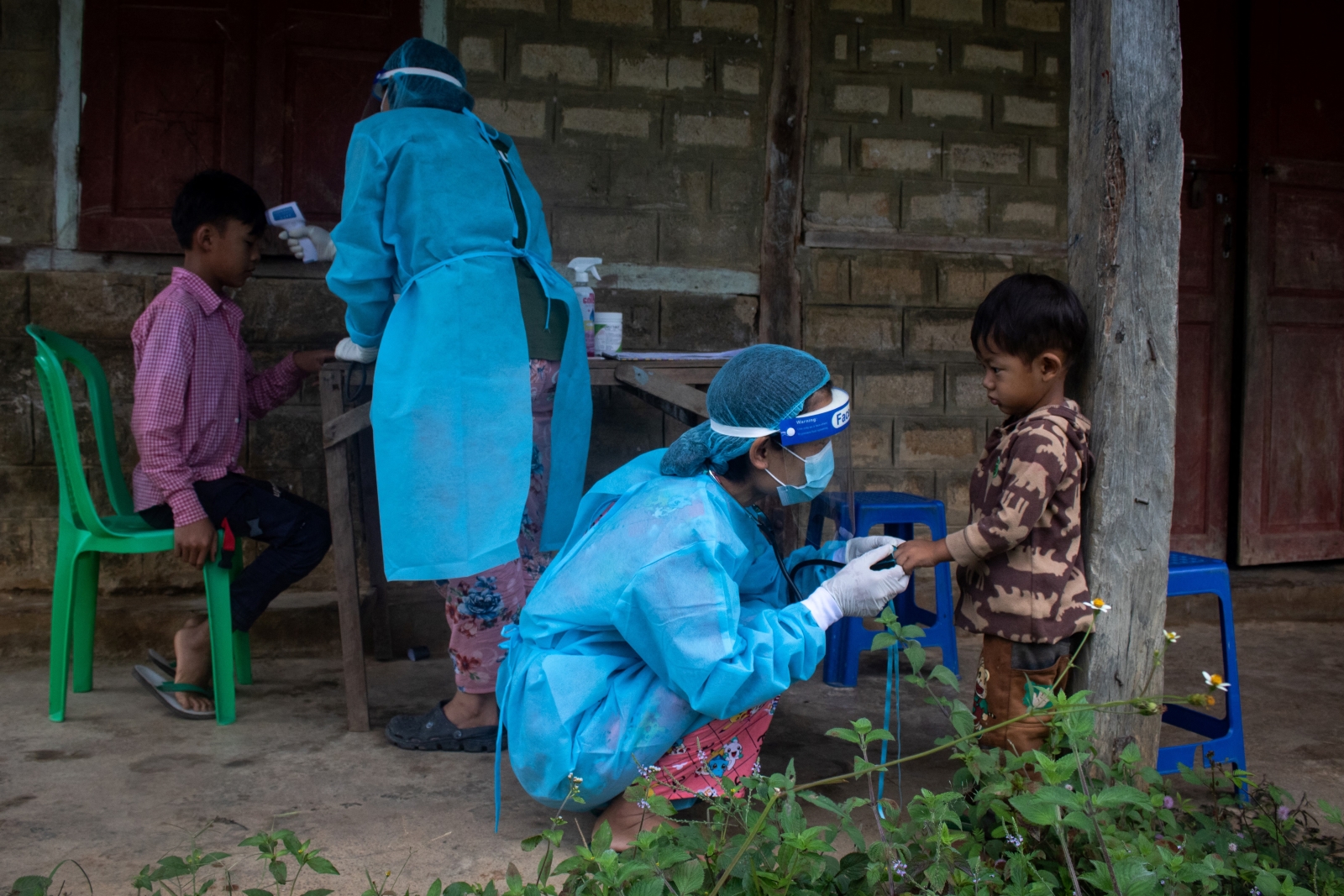The early delivery of vaccines is one of the many boons of the country’s geopolitics, but to really take advantage, Myanmar must bury the legacy of its isolationist past.
Myanmar’s politics often give the impression of a country under siege from hostile forces. Threats to its sovereignty are invoked in the form of Chinese resource grabs, illegal immigration from Bangladesh, and meddling from Western countries under the banner of human rights. Yet, as we enter 2021, Myanmar finds itself with far more friends than enemies.
On January 22, the country’s first batch of COVID-19 vaccines arrived by air from India. With rich countries hoarding much of the world’s vaccine supply, Myanmar cannot take deliveries like this for granted. India has delayed vaccine exports to much of the world in order to conserve stocks for its own substantial needs but made an exception for its immediate neighbours, Myanmar among them.
Meanwhile, China is offering to donate hundreds of thousands of its own, less-tested vaccines. Myanmar’s national inoculation campaign will also be heavily supplemented by free shipments from COVAX, the global vaccination initiative for low- and middle-income countries.
Vaccinating everyone in Myanmar will take far longer than in most wealthy and even middle-income countries, and will likely hit many roadblocks. Myanmar is not off to a bad start, though. And, more importantly, the favourable geopolitics that have helped secure these doses could work for the country in ways that go well beyond vaccine diplomacy.
Alarmists tend to present China’s Belt and Road Initiative as a debt trap that will make the country a political colony of Beijing, pointing to Cambodia and Laos as cautionary tales. The risks are undeniable, but can be countered with a balanced foreign policy, which Myanmar is well-placed to pursue. India and the United States are both more than willing to provide balance in its relations with China. These relationships can deliver their own unique benefits, but also give Myanmar the security and confidence to secure investment from China on its own terms – investment that lays the basis for genuine development, rather than the selling off the country’s natural assets or jeopardising its sovereignty.
It’s undeniable that after relations with the West soured with the escalation of the Rohingya crisis in 2017, Myanmar came to depend on China to protect it from international accountability efforts. Many analysts thought Myanmar had squandered the foreign policy dividends of the reforms it launched in 2011 and was now firmly back in the Chinese fold. But since then, rather than greenlighting a slew of dubious Chinese mega projects, Myanmar has largely hit the brakes on the Belt and Road, renegotiating the terms of the Kyaukphyu port – with some American help – and deferring several Chinese proposals, to the clear frustration of Beijing.
The recent transfer of power in Washington presages a greater American commitment to the cause of human rights in Myanmar, particularly for the Rohingya. This might worry some in the government, particularly those wedded to a disastrous strategy that has combined denials and obfuscation abroad with the stoking of a nationalist siege mentality at home.
But it shouldn’t worry them. Given the likely continuation of America’s preoccupation with countering China, the Biden administration will be eager to maintain relations with Nay Pyi Taw. And, unlike the former administration, his team is likely to have the personnel, bandwidth and resources to engage with Myanmar and offer support in a way that Trump never could.
But US support will be hard to sustain if Myanmar does not demonstrate genuine progress in Rakhine State. The place to start is obvious – implementing the recommendations of the Kofi Annan-led commission on Rakhine, including by reviewing the wording and application of the 1982 Citizenship Law.
Like much else in Myanmar’s politics and institutional makeup, the citizenship law is a relic from a time when the government tried to isolate the country and stoked xenophobia on the airwaves and in the classroom – and codified it in the lawbooks. This was a dark era that society has been trying to escape from ever since, yet some of its most characteristic features remain in place – accepted as the natural way of things, or clung to out of a misplaced sense of security amid a time of great change.
Not only does this legacy drive violence and discrimination, it is radically at odds with the country’s place in the world. Simply put, most developing countries would give anything for the geopolitical cards Myanmar has been dealt. All that is needed is the wisdom to play these cards well – and the courage to part with harmful legacies that only hold the country back.







